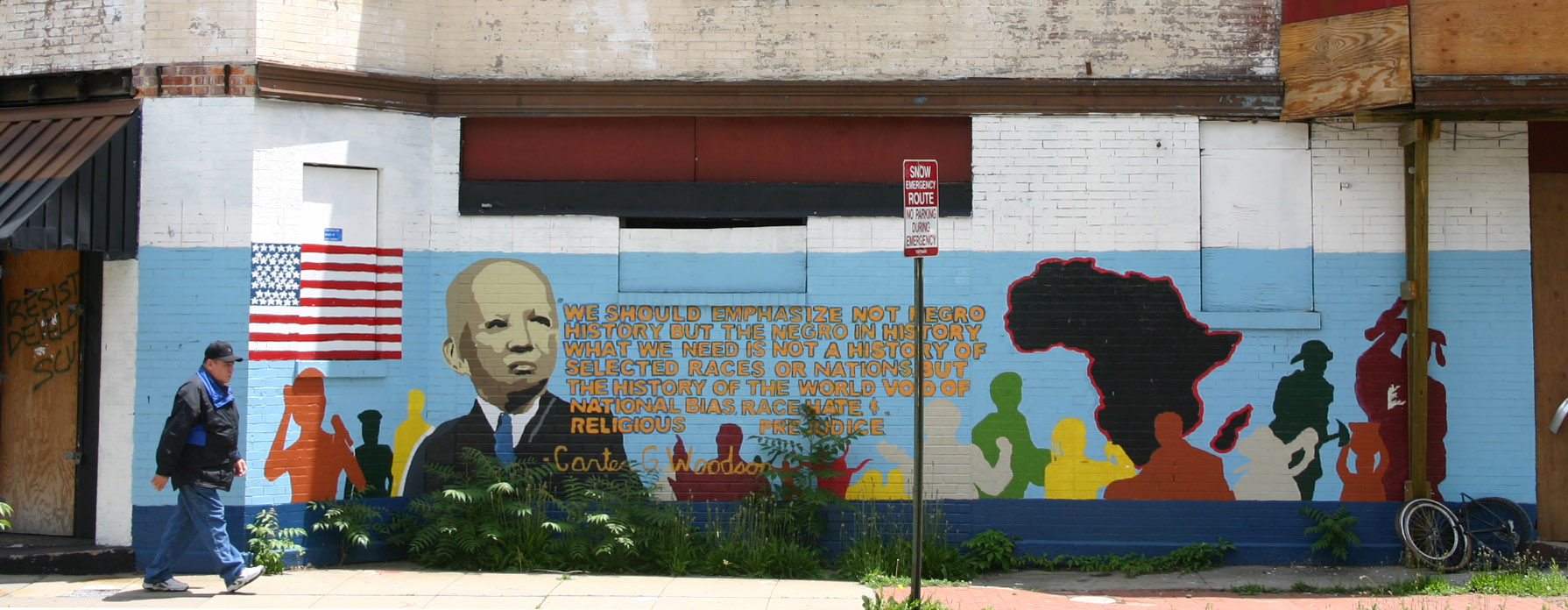The Maria Montessori Academy, a charter school forty miles north of Salt Lake City allowed parents of the North Ogden school the option to opt-out of the Black History Month curriculum earlier this month, a move that was later retracted after an outcry from the community.
Over 94 percent of the 20,000 plus community is made up of white residents, with only .8 percent of the residents being Black, according to reporting which cited the U.S.Census Bureau. Exacerbating the issue, of the 322 students at the Montessori Academy, only three are Black, pointing out, if nothing else, perhaps the biggest reason why we should celebrate Black History.
Black History Month got its start as “Negro History Week,” the brainchild of Black historian Carter G. Woodson, the son of former slaves and the second African-American to graduate from Harvard after sociologist and writer of “The Souls of Black Folk,” W.E.B. DuBois.
Woodson found that the history of Black people was either misrepresented or left out altogether, in favor of the white-centric history that focused on predominantly white males.
So then, you might ask, if the problem is that history is predominantly white, male-centric, then why is that a problem?
Well, obviously, history isn’t only shaped by white, male men. It’s just portrayed as such because most seats of power, especially in the early days of America, were held by predominantly white men. It wasn’t until, for instance, 2008, that a non-white male was elected to be president of the United States.
Hiram Revels of Mississippi and Joseph Rainey of South Carolina were elected to Congress in 1870, just five years after the close of the Civil War. Revels himself was perhaps one of the first members of any governing body to fight for integration opposing Ohio Senator Allen Thurman’s amendment perpetuating segregated schools in the District of Columbia.
Though, not all figures of Black History were politicians.
Without Robert Johnson and Chuck Berry, we probably wouldn’t have rock music, at least in the form we know it today. Without Langston Hughes, we wouldn’t have the Harlem Renaissance. Without Louis Armstrong, Duke Ellington, and Benny Goodman, would we even have jazz?
That’s not even taking into account the contributions to our society that people like Sojourner Truth, Harriet Tubman, Rosa Parks, Jackie Robinson and the millions of other Black figures in our nation’s history and the impact they’ve had.
But further than that, at the height of the Trans-Atlantic Slave Trade, 18 percent of the American population was made up of African slaves, something that many argue has larger implications of the economic power of the United States. To put that into greater context, a fifth of the United States’ population was that of slaves in 1776.
Cotton, America’s most exported commodity at the height of slavery, was an industry built on the backs of chattel slavery. In other words, the driving force of America’s early economic successes and the reason they were in many ways, on the same economic rung as the great European powers was due, almost exclusively, to African slaves.
To put it another way, African Americans built America into an economic powerhouse before they were even given the distinction of being considered citizens of the country they were living in.
To opt-out of this history is to pretend that the history that built this country, the people that built it, were not as fundamental in the forming of our modern world. It is an egregious insult to the history of our own country’s moral failings and greatest successes.
Black History Month was created, so that, unlike the rest of the year, we would dedicate a month to learning the history we so often shove to the side. It was created so we could finally shine a light on a fuller understanding of our own nation’s history and how though many of our country’s leaders were white men, that other non-white men had contributions that were, in some ways, greater and more impactful to our country and our society.
And to those who would say, well, why isn’t there a history month for other groups of people? To that, I would say: there are. LGBTQ+ History Month is in October, Women’s History Month is in March, Native American Indian Heritage Month is in November, Jewish American Heritage Month is in May, National Hispanic Heritage Month runs from Sep. 15 to Oct. 15. Chances are if you’re looking for a month that celebrates your heritage and its impact on history, there is a month.
Though some still may argue, well, there is no “White-American History Month.” And to that I would say two things:
One, that there are several months dedicated to the history of white people in America, including Polish American Heritage Month, which is celebrated in October, Irish-American Heritage Month, which is celebrated in March and Italian-American Heritage and Culture Month which is celebrated in October.
And two, that we have an entire month dedicated, in the case of Black History Month, to a single race rather than to nationalities because the African slaves that were brought over here were stripped of their native tongues and history. In other words, there is no “Nigerian-American Heritage Month” because that history and that inclusion in a nation’s heritage was stripped away by white American slave owners.
So, the next time you think that Black history isn’t important, remember that the Black history is our history.
Richard Foltz
Associate Editor


